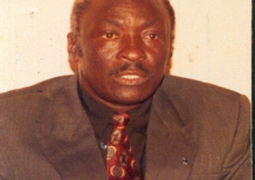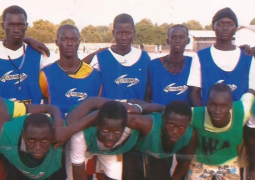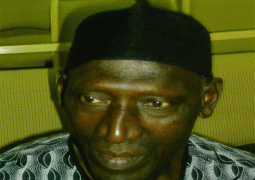Communities in the Upper River Region of The Gambia are enjoying the pleasures of social development and having the lives of their inhabitants transformed to a more respectable standard of living thanks to the intervention of TOSTAN Gambia, a rural NGO operating in the upper part of the country.
The Tostan project in partnership with The Gambia government and supported by UNICEF is aimed at ensuring dignity for all through social mobilization and community empowerment.
After three years of community-based intervention, traces of social advancement and greater move towards sustainable empowerment of the grassroots are visible in the communities of intervention.
A media release sent to this paper said, prior to the intervention of Tostan, locals said their communities where practicing harmful traditional practices like FGM; not sending their children to school; pay little attention to health and hygiene, particularly for children; and, there was disengagement of women and girls in the day-to-day affairs of their communities.
The communities also had no planned micro development schemes to better their lot, aside their annual dependence on farming and periodic gardening.
But with the coming of Tostan, they have abandoned harmful traditional practices such as female genital cutting; increased enrollment of children in schools, particularly girls; witnessed the emergence of female leadership and increased income and livelihood; ensure registration of children at birth; increased use of vaccination resources; and reduced infant and maternal mortality rates; and benefitted from increased awareness on human rights and democracy issues, among a host of others. Thus enabling them to realize their hidden dignity and be empowered to understand and value their entitlements as humans.
Journalists staggered on this reality last Friday after they were invited by Unicef to visit Tostan project sites, dialogue with local people and see for themselves the effect of Tostan in rural Gambia.
The visit which is part of the social policy component of the new Unicef country programme and dubbed Media Support for Advocacy took journalists to Kanubeh village some ten kilometers away from Basse for a direct interaction with the beneficiaries of the Tostan support.
Welcoming the media advocacy team, the alkalo of Kunubeh, Bakary Darboe, expressed his gratitude to Tostan, Unicef and the government for the great strides achieved in the village. He urged other NGOs and organisations to emulate the good work of Tostan.
The chairman of the village development committee, Kesutung Jarra, was also full of praises for Tostan, adding that before their intervention in his village many of them were illiterate, but now they are aware of best practices in health and take part in community service and the decision-making process.
“Since the intervention of Tostan a few years ago, tremendous gains and strides have been made in the areas of health and nutrition, education, problem-solving and mediation,” the VDC chairman told the meeting held at the village bantaba.
Before the introduction of the Tostan programme, women were not allowed to take part in decision-making process in the village.
“Whatever we learnt from Tostan has been disseminated to others who are less privileged,” he added whilst calling for the expansion of the project to other parts of the region.
During the briefing session, some women demonstrated what they had learnt and how they are implementing the outcome of the project. They said they would be able to sustain the project.
Speaking directly with journalists without reservation, the villagers of Kanubeh were very fluent, direct and exhibited greater understanding of what Tostan brought into their community.
Their quick response to questions from journalists and firm control and direction of the meeting during an open discussion session symbolized that, with Tostan Gambia, rural Gambia is under massive transformation. And after two and half hours of discussions, journalists left the village with firm awareness that the village of Kanubeh has changed for the better, and the determination of the villagers to sustain that change was also on sight.
“Due to the intervention of Tostan and Unicef they have abandoned harmful traditional practices such as female genital cutting, increased enrollment of children in schools, particularly girls, witnessed the emergence of female leadership and increased income and livelihood, ensure registration of children at birth, increased use of vaccination resources and reduced infant and maternal mortality rates and benefitted from increased awareness on human rights and democracy issues, among a host of others”, the villagers revealed.
Sally Sadie Singhateh, Unicef communication specialist, who led the media advocacy team, told the meeting that knowledge and information-sharing was a vital tools for development, while calling on the media to increase their advocacy in order to increase the awareness campaign.
The Unicef communication specialist urged them to apply the knowledge in practical ways that will better shape their lives, adding that Unicef felt proud that the project has impacted positively on the community.




